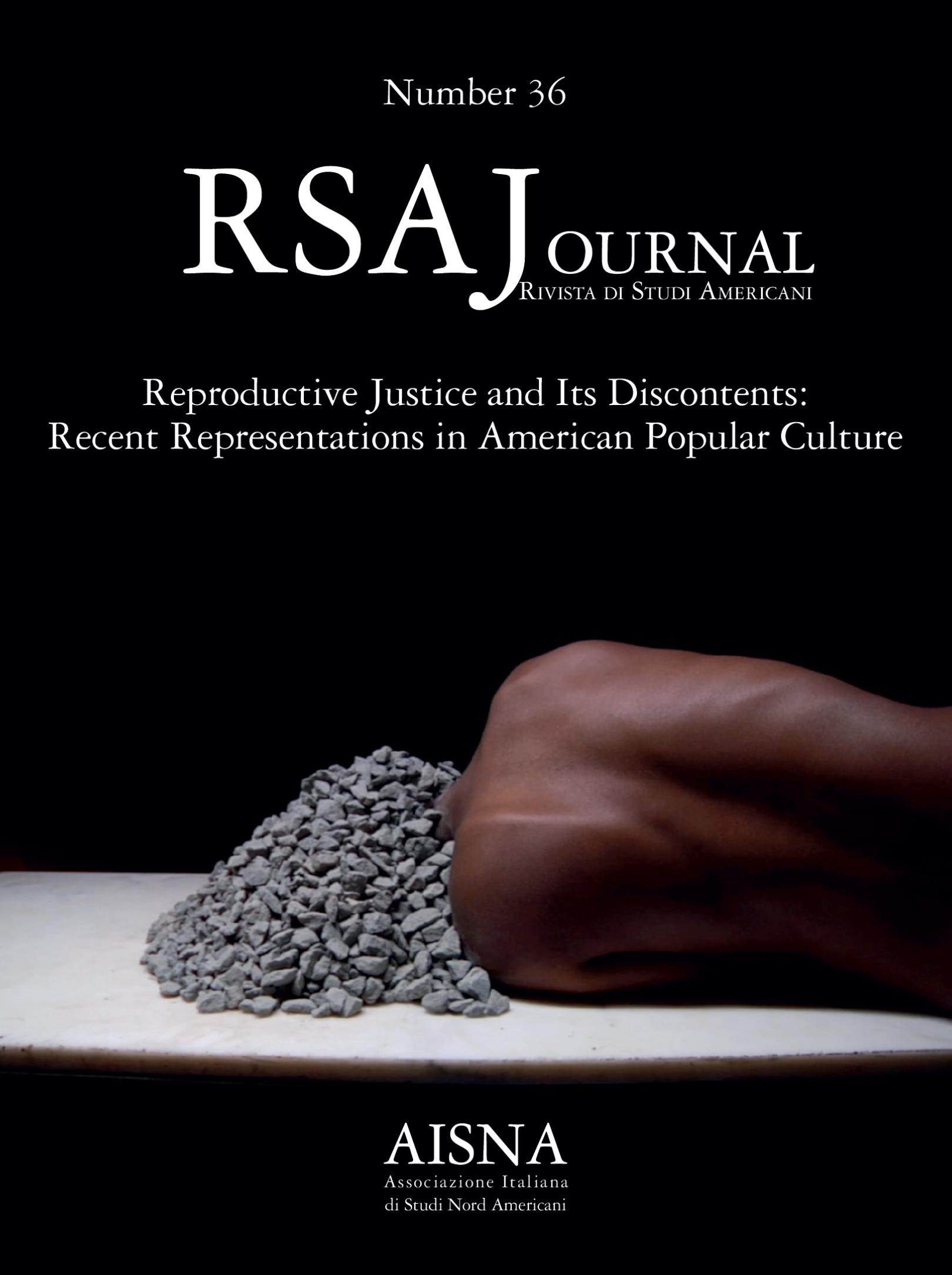When the Past is Prologue
Involuntary Sterilization in Recent American Women’s Historical Fiction
DOI:
https://doi.org/10.13135/1592-4467/11780Keywords:
Involuntary Sterilization, Eugenics, Reproductive Justice, Historical Fiction, American Women WritersAbstract
This article analyzes representations of involuntary sterilization in recent historical fiction by American women writers. Focusing on novels published in the past two decades, it examines how authors engage with the legacies of eugenics and the forced sterilization practices carried out in twentieth-century America. Part of a growing number of popular novels representing involuntary sterilization in the larger context of reproductive health, choice, and justice, A Mother’s Promise by K.D. Alden (2021), Only the Beautiful by Susan Meissner (2023), Necessary Lies by Diane Chamberlain (2013), and Take My Hand (2022) by Dolen Perkins-Valdez use point of view, characterization, and dramatic structure to engage contemporary readers. They foreground themes of class, disability, race, gender, and sexuality, illustrating how intersecting systems of oppression shaped reproductive policies and their enforcement. These novels effectively employ the tropes of historical fiction, reimagining historical figures such as Carrie Buck and institutions such as the Virginia State Colony for Epileptics and Feebleminded, connecting dramatic action to actual events including American legal cases and Nazi sterilization protocols, and including personal reflections in author’s notes as well as educational material such as Reading Group Guides. Through an analysis of narrative technique, the article highlights the complex ways in which these works address bodily autonomy, reproductive justice, and resistance. The analysis situates these novels within the broader context of American social and legal history as well as feminist and literary theory, considering the ongoing relevance of sterilization as a tool of state control and its cultural resonance in American society. By examining how historical fiction functions to remember and reimage past injustices, the article also reflects on the power of fiction to counter dominant historical narratives and foster a deeper understanding of reproductive rights and justice. Ultimately, it argues that these novels serve not only as artistic expressions and popular entertainments but also as interventions in public memory.
Downloads
Published
Issue
Section
License
Copyright (c) 2025 Beth Widmaier Capo

This work is licensed under a Creative Commons Attribution-NonCommercial-NoDerivatives 4.0 International License.
RSAJournal applies a CC BY-NC-ND license to all its contributions. This license enables reusers to copy and distribute the material in any medium or format in unadapted form only, for noncommercial purposes only, and only so long as attribution is given to the creator. CC BY-NC-ND includes the following elements:
- BY: credit must be given to the creator.
- NC: Only noncommercial uses of the work are permitted.
- ND: No derivatives or adaptations of the work are permitted.
Authors who publish with this journal agree to the following terms:
- Authors retain the copyright and full publishing rights for their submissions to the journal.
- Authors grant the journal right of first publication with the work simultaneously licensed under a Creative Commons Attribution-NonCommercial-NoDerivatives 4.0 International License that allows others to share unedited work for non-commercial purposes with an acknowledgement of the work's authorship and initial publication in this journal.
- Authors are able to enter into separate, additional contractual arrangements for the non-exclusive distribution of the journal's published version of the work (e.g., post it to an institutional repository or publish it in a book), with an acknowledgement of its initial publication in this journal.




